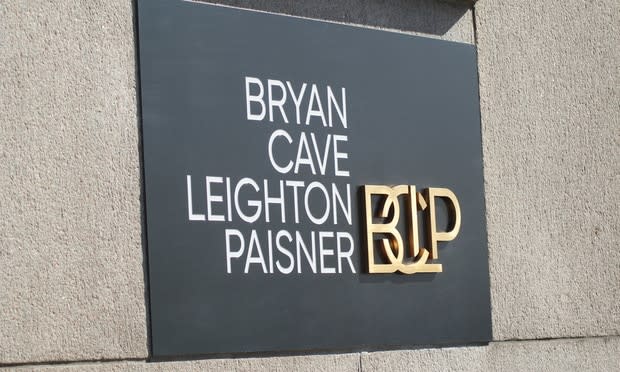When applying for a job, you should use a combination of hard and soft skills to convince the recruiter you’re the right fit. But what are hard skills vs. soft skills? Hard skills are measurable and are often specific to the job or industry. Meanwhile, soft skills are typically vague and apply to more professions.
Unfortunately, having one or the other isn’t going to cut it in the current competitive job market. Recruiters and hiring managers are looking for well-rounded employees who can bring both tangible and intangible skills to the table.
>>MORE: Discover what careers are right for you based on your skills with our free career aptitude test.
What Are Hard Skills?
Hard skills usually involve technical expertise in a particular field. In some cases, they may require certifications or courses to show your proficiency.
Every job has a specific set of hard skills needed to succeed. For example, working as a software developer may require you to have knowledge on specific coding languages such as Python or Java.
These skills can be measured in a clear cut manner. When reading a job description, hard skills are the skills you can easily identify and know right away if you possess them or not. Some examples of hard skills include:
- Programming languages like HTML, JavaScript, and CSS
- Copywriting
- Data mining and analytics
- Excel functions like Pivot Tables
- Search engine optimization (SEO)
- Risk management
- User interface (UI) and user experience (UX) design
- Proficiency in a second language

Goldman Sachs Excel Skills for Business
Master in-demand Excel, finance, and business skills with this free job simulation from Goldman Sachs.
Avg. Time: 4 to 5 hours
Skills you’ll build: Excel, cell basics, formatting, financial forecasting, financial statements, cash flow modeling, charting
How to Build Your Hard Skills
Developing hard skills to impress employers can seem difficult if you’re not currently working. Where should you begin if you need hard skills to land a job?
Luckily, you can start to build your hard skills, even without a job. Volunteering, internships, part-time roles, and bootcamp opportunities are great starting points to develop hard skills. These are perfect ways to develop your skills while still in school.
If you’re struggling to figure out which skills to work on, look at job descriptions of opportunities that interest you and see what skills are required for those positions. There are also courses and opportunities online that allow you to become proficient in a specific hard skill without even leaving your home, like virtual job simulations where you can build both hard and soft skills directly from companies, completely free.
Showcase new skills
Build the confidence and practical skills that employers are looking for with Forage’s free job simulations.
What Are Soft Skills?
Soft skills are more vague and harder to define compared to hard skills. Soft skills are how you work with other people and operate in the workplace. For instance, great communication skills are soft skills that are necessary for almost any job.
Because soft skills are more general in nature, they’re applicable to nearly every job on the market, but you should still take the time to explain them on your resume or in an interview. Be prepared to share examples of how you’ve demonstrated soft skills in your previous work experiences. Some soft skills include:
- Problem-solving
- Leadership
- Teamwork and collaboration
- Adaptability
- Time management
- Organization
- Work ethic
- Flexibility

National Urban League Career Readiness
Learn vital career-search skills and land your dream job with National Urban League's free job simulation.
Avg. Time: 5.5 to 7 hours
Skills you’ll build: Speaking, communication, research, planning, networking, writing, resume writing, interviewing
How to Develop Your Soft Skills
Because soft skills aren’t as cut and dry as hard skills, it can be difficult to know how to develop them. The key is first knowing which soft skills you want to develop, then seeking out activities that require them.
For instance, if you want to develop your leadership skills, take on volunteer roles or personal projects where you have to manage people. Perhaps run for president of a club or build an app with the help of other designers and engineers. With soft skills, there’s a less-defined path of acquiring skills and it’s more about practice.
Courses — either online or in person — are another great opportunity to practice soft skills. Committing yourself to taking a course helps you practice organization, time management, and adaptability.
>>MORE: Check out the top skills you should have on your resume in 2026.
Are Hard Skills vs. Soft Skills More Important?
Although it may seem like employers would favor hard skills because they’re essential to completing the tasks they need you for, a blend of both soft and hard skills is crucial to be an ideal job candidate. Remember that you can learn hard skills through training while soft skills may take longer to develop because they often come with experience.
According to Monster’s 2022 Future of Work report, the top skills employers are looking for are typically soft skills, like communication and problem-solving. In fact, 63% of employers say they’re open to hiring candidates with strong transferable soft skills, and teaching them the hard skills they need to do the job. However, hard skills in information technology (IT) and strategic planning are in demand in the current job market. Having desirable hard skills can boost your resume and make you a better candidate overall.
Therefore, don’t focus too much on one or the other when it comes to hard vs. soft skills — make sure you have a good foundation of both types.
How to Showcase Your Hard vs. Soft Skills
Showcasing your hard and soft skills should go beyond simply listing them in your resume. You want to prove to recruiters that you genuinely have the skills to succeed and will put them into practice. This can be especially difficult for soft skills, as there aren’t certificates to prove your proficiency.
Some ways you can showcase your skills include:
- Your cover letter: Provide examples and show the hiring manager your soft skills through experiences, rather than simply stating the skill.
- During job interviews: Elaborate on some of your past experiences and how they demonstrate your soft skills. If you’re trying to show your effective communication skills, ensure that you’re speaking slowly and precisely during the interview.
- Use experiences to back up your stated skills: Emphasize projects that show you have both hard and soft skills to demonstrate to your potential employer that you have not only the technical know-how, but the management and prioritization skills to get the job done efficiently.
Build real-word skills with Forage’s free job simulations.
What Career Is Right for You, Based on Your Hard and Soft Skills? Quiz
What careers are right for you based on your skills? Take this quiz to find out. It’s completely free — you’ll just need to sign up to get your results!


